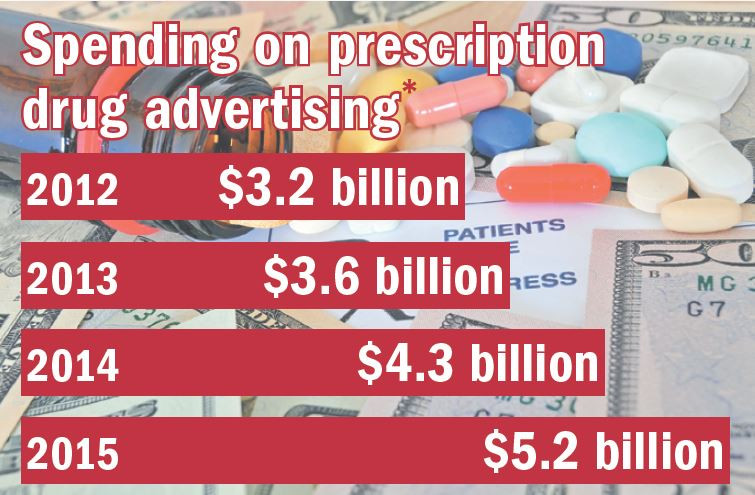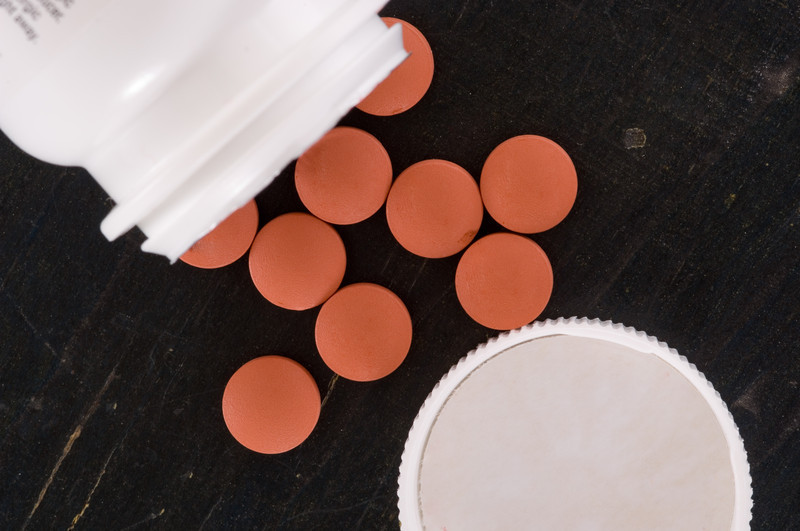
Counting steps is good — is combining steps and heart rate better?

Appendix pain: Could it be appendicitis?

Can saw palmetto treat an enlarged prostate?

How does Ozempic work? Understanding GLP-1s for diabetes, weight loss, and beyond

Zinc: What it does for the body, and the best food sources

Respiratory health harms often follow flooding: Taking these steps can help

Tips to leverage neuroplasticity to maintain cognitive fitness as you age

Can white noise really help you sleep better?

Celiac disease: Exploring four myths

What is prostatitis and how is it treated?
Medications Archive
Articles
Long-term use of opioids may depend on the doctor who prescribes them
Some doctors are more likely to prescribe opioids to their patients, and those patients are more likely to end up taking them long-term. It's crucial for consumers to educate themselves about the risks of taking opiates, and to consider alternatives if possible.
Short circuit migraines before they start
Author and migraine sufferer Joan Didion once wrote, "That no one dies of migraine seems, to someone deep into an attack, an ambiguous blessing." At that time, migraines weren't something that could be prevented. Today, that's a possibility for some people who have severe migraines, frequent migraines (more than three or four times a month), or migraines that don't respond well to treatment.
The cornerstone of migraine prevention is managing triggers like stress or certain foods or strong perfumes. Alternative and complementary therapies (like acupuncture) help some migraine sufferers keep headaches at bay.
Ask the doctor: Should I continue aspirin therapy if I do not have heart problems?
Aspirin therapy can help prevent a second heart attack and stroke, but for otherwise healthy older men, its use depends on their 10-year risk for a heart attack or stroke as determined by their doctor.
Do not get sold on drug advertising
Prescription drug ads are a multibillion-dollar industry that promotes treatments you may or may not need. Here's how to use that information to your advantage.
Ads for prescription drugs are everywhere. You can't watch a sporting event without seeing an ad touting a treatment for erectile dysfunction, high cholesterol, high blood pressure, or joint pain.
Drug marketing is a big business, and companies are willing to spend a lot of money to offer you an easy solution to a health problem you may or may not have. From 2012 to 2015, yearly spending on prescription drug advertising in all media outlets (except digital) rose from $3.2 billion to $5.2 billion, and that figure is expected to only go up.
Ask the doctor: Why would I need Prolia?
Denosumab (Prolia) is recommended for people at high risk for fractures for whom other bone-loss treatments were ineffective or had intolerable side effects.
The downside of taking pills to treat chronic pain
When the risks of medication outweigh the benefits.
Image: © iStock
Taking over-the-counter or prescription painkillers may seem like a simple solution for chronic pain. It's actually a bit more complicated, yet many older adults aren't aware of potential problems. "They think that if it doesn't require a prescription, it's safe. But there are some long-term health risks," says Dr. Edgar Ross, director of the Pain Management Center at Harvard-affiliated Brigham and Women's Hospital.
Here's what you should know about some commonly used pain relievers.
6 ways to stay on your medication plan
Take control by using helpful gadgets and talking to your doctor about reducing your medications.
Image: © Wavebreakmedia/Thinkstock
There are many reasons why people are unable to stick to a medication regimen prescribed by a doctor, such as high costs or drug side effects. Often, those issues can be resolved by asking your doctor if a switch to another drug will help.
Another reason for what doctors call "non-adherence": too many pills and confusion about taking them. "It is a bigger problem than organization, and not always the patient's fault. Often providers write too many prescriptions without explaining them, or create a complicated schedule," says Dr. Sarah Berry, a geriatrician and assistant professor at Harvard Medical School.
Follow medication instructions
It appears that adverse drug events that lead to visits to the emergency department are increasing among older adults.
New prescription? Talk to your pharmacist
A conversation with this health professional can help you avoid making harmful mistakes.
Image: wavebreakmedia/Thinkstock
When your pharmacist hands you your pills, he or she is likely to ask, "Any questions?" This is an invitation to tap into a vast store of knowledge—and one you should accept. A few minutes with your pharmacist may spare you some serious health consequences.
"People are often in the dark regarding the purpose of their medication," says Dr. Gordon Schiff, associate professor of medicine at Harvard Medical School. Although prescriptions come with a lengthy package insert containing detailed information about the drug, the information is often written in technical terms and printed in microscopic type. The lack of clear information and the confusion and misunderstandings that result figure into more than a million preventable medical complications annually.
How does the new vaginal product alleviate pain during intercourse?
Intrarosa, a vaginal insert containing dehydroepiandosterone (DHEA), improves vaginal lubrication to alleviate pain during intercourse.

Counting steps is good — is combining steps and heart rate better?

Appendix pain: Could it be appendicitis?

Can saw palmetto treat an enlarged prostate?

How does Ozempic work? Understanding GLP-1s for diabetes, weight loss, and beyond

Zinc: What it does for the body, and the best food sources

Respiratory health harms often follow flooding: Taking these steps can help

Tips to leverage neuroplasticity to maintain cognitive fitness as you age

Can white noise really help you sleep better?

Celiac disease: Exploring four myths

What is prostatitis and how is it treated?
Free Healthbeat Signup
Get the latest in health news delivered to your inbox!
Sign Up








